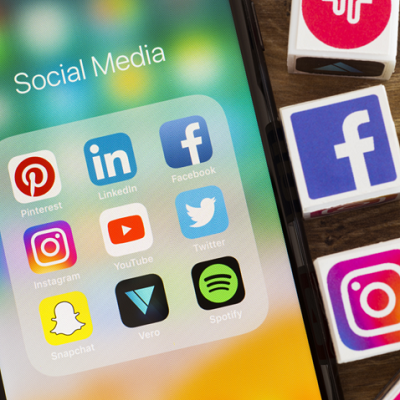
Positive and negative aspects of social networks
Social networks have made it possible for people to share photos, correspond, make new friends or find old ones who have been disconnected for one reason or another. However, these are not all the reasons why they are so appealing to young people. So, it’s worth sorting out the pros and cons of interacting online.
Advantages
The ability to find information quickly. On social networks, it is easy to find any audio and video information or information about the person you are interested in. Perhaps this is because when a person registers on one of the social networks, he gives certain information (name, surname, age, marital status, education). But it is possible if a person has given true information about himself/herself. This makes it much easier to find friends or people with common hobbies and goals.
Exchange of information has become easier with the advent of the Internet. Almost everyone now has a mobile device that allows us to communicate, play and send audio files through apps and social media, as it is more expensive to do it through MMS. If you are registered in some social networks, you can tell your friends about the latest news or send them your holiday photos.
Finding like-minded people on social networking sites isn’t a problem at all these days. No matter what your hobby is, you’re bound to find someone with similar interests, goals and passions. By finding a fellow craftsperson you can exchange ideas, reach new heights and share the results you’ve already achieved.

Disadvantages
Social media wastes your time. Yes, for some, lingering on social media is a great way to pass the time, but for others it’s wasted minutes that could have been devoted to something useful. You could be meeting up with friends, reading a book or learning something new.
Detachment from the real world. On social media, we can shape our pattern of behaviour in different ways. But in almost all cases, this image is significantly different from what it is in the real world. According to studies, about 70% of users embellish their lives to appear cooler, richer, perhaps even prettier. By shaping imaginary qualities in social networks, people risk getting lost in the virtual world, to the point where it can be extremely difficult to return to the real world.
The degradation of language and the introduction of incomprehensible words into everyday speech is also a negative impact of social media. Active users often have the words ‘like’, ‘use’, ‘lol’, ‘lmao’ and so on in their vocabulary. All these nonsensical words detract from the richness of one’s mother tongue.
Loss of social skills. Abusing virtual communication and substituting real communication for real ones robs a person of his or her social skills. In real life you cannot “Like” a picture, delete a friend you don’t like or add a new friend you do like. The system of real-life relationships is much more complex and diverse than in networks.
Regular use is addictive. Psychologists have long identified that social networks can cause addiction. And teenagers are the most susceptible, with the deprivation of access to the internet that can drive them into a frenzy.
Social networks are overflowing with abusers and other malcontents. Internet communication spheres are not a place for naive people. The overly gullible risk falling into the trap of scammers.
Health hazards and loss of motivation. Spending a lot of time on the computer or on the phone in social networks can lead to impaired vision or spinal curvature. In addition, constant use can lead to a decrease in mental alertness and, consequently, a decrease in performance.
It is important to understand that social media is only a supplement to real communication, and by no means a substitute for it. It is necessary to take only the good from them, excluding all the bad!
